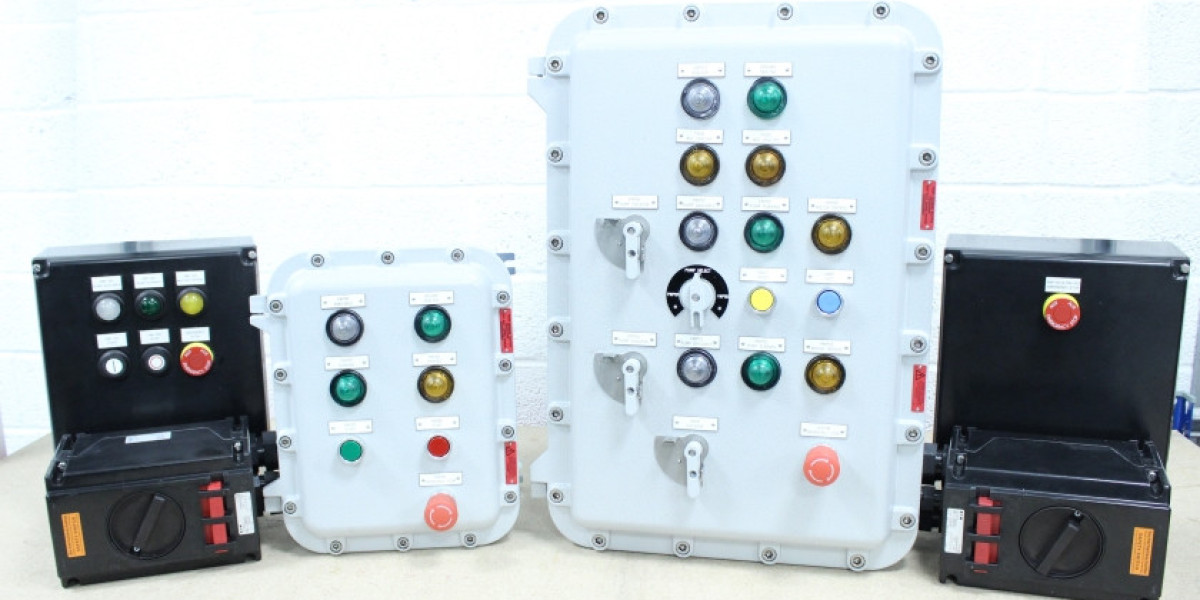Market Research Future Insights
The hazardous area equipment market industry is projected to grow from USD 13.77 Billion in 2023 to USD 23.320 billion by 2032, exhibiting a compound annual growth rate (CAGR) of 6.80% during the forecast period (2023 - 2032). The focus on mounting safety processes in industries is predicted to transform the hazardous area equipment market in the approaching period. The restructuring of several processes and equipment is estimated to bolster the hazardous area equipment market in the impending period. Also, the requirement for the explosion- and flameproof hazardous area equipment is predicted to inspire the hazardous area equipment market.
"Request Free Sample" - https://www.marketresearchfuture.com/sample_request/3680
Market Segmentation
The segmental investigation of the hazardous area equipment market is conducted on the basis of product, connectivity services, end-users and region. Based on the connectivity services, the hazardous area equipment market is divided into wireless and wired. On the basis of product, the hazardous area equipment market is segmented into industrial controls, motors, lighting products, strobe beacon, process instruments, and sensors, among others. On the basis of end-user, the hazardous area equipment market is segmented into energy & power, government & defense, steel & metal, oil & gas, automotive & aerospace, chemical & pharmaceutical, food & beverages, mining and others. Based on the Regions, the hazardous area equipment market is segmented into Europe, North America, Asia Pacific, and the other regional market.
Key Players
The well-known players in the hazardous area equipment system market are NHP Electric Engineering Products (Australia), PATLITE Corporation (US), Honeywell International Inc. (US), Eaton Corporation Plc (US), Rockwell Automation (US), ABB Ltd. (Switzerland), Siemens AG (Germany), R.STAHL AG (Germany), E2S Warning Signals (US), and Emerson Electric Co. (US) among others.
Hazardous area equipment is used in industries where there is a risk of fire or explosion due to the presence of flammable or combustible gases, liquids, or dusts. This equipment is designed to prevent fires and explosions by providing electrical and mechanical protection. The most common types of hazardous area equipment include motors, lighting, control products, alarm systems, and cable glands.
The oil and gas industry is the largest end-user of hazardous area equipment, accounting for over 30% of the market in 2023. The growing demand for oil and gas in developing countries is driving the growth of the market in this industry. The chemical and pharmaceutical industry is another major end-user of hazardous area equipment, accounting for over 20% of the market in 2023. The increasing demand for chemicals and pharmaceuticals in a variety of industries is driving the growth of the market in this industry.
The food and beverage industry is also a major end-user of hazardous area equipment, accounting for over 10% of the market in 2023. The growing demand for food and beverages in developing countries is driving the growth of the market in this industry.
The growth of the hazardous area equipment market is being hindered by the high cost of this equipment. However, the increasing demand for safety in hazardous areas is expected to offset this challenge and drive the growth of the market in the coming years.
Hazardous area equipment is used in areas where there is a risk of explosion or fire. This equipment is designed to be explosion-proof or flame-proof, and it must meet strict safety standards. The most common types of hazardous area equipment include motors, lighting, control products, and cable glands.
The oil and gas industry is the largest market for hazardous area equipment. This is due to the presence of flammable gases and liquids in oil and gas facilities. The chemical and pharmaceutical industries are also major markets for hazardous area equipment, as they use a variety of hazardous chemicals. The food and beverage industry is a smaller market, but it is growing rapidly due to the increasing demand for processed foods.
The growth of the hazardous area equipment market is being driven by a number of factors, including:
- The increasing demand for hazardous area equipment in emerging markets
- The growth of the oil and gas industry
- The increasing use of hazardous chemicals in manufacturing
- The rising awareness of safety regulations
The hazardous area equipment market is fragmented, with a large number of small and medium-sized players. However, there are also a few large companies that dominate the market, such as ABB, Emerson Electric, and Schneider Electric.
Related Reports:
Transparent Conductive Film for Display Market
Conclusion:
The hazardous area equipment industry plays a crucial role in ensuring the safety and productivity of industries operating in hazardous environments. With increasing industrialization, stringent safety regulations, and technological advancements, the industry is witnessing significant growth opportunities. As organizations prioritize safety and governments enforce stricter regulations, the demand for specialized equipment will continue to rise. By embracing innovation, fostering collaboration, and emphasizing sustainability, the hazardous area equipment industry is poised for a promising future, enabling safer operations across various sectors worldwide.








